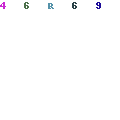University of Denver professor discusses Turkey as a political power
Joseph S. Szyliowicz, a graduate school professor at the University of Denver, spoke about Turkey as a political power in the Eastern Mediterranean as part of the International Speaker Series on campus.

Joseph S. Szyliowicz, a graduate school professor at the University of Denver, discussed Turkey's role as a political power as part of SIUE's International Speaker Series.
Turkey, located between the Middle East and Eastern Europe, has a population of almost 74 million and is not a full member of the European Union.
Szyliowicz discussed Turkey’s role as a democratic Islamic state, what that means for the future of Turkey and if Turkey can be an example for other countries.
Domestic political concerns have also shaped Turkey’s foreign policy, Szyliowicz said. The major shift occurred in 2002, according to Szyliowicz, when a new Islamic party, the Justice and Development party, came to power after securing 34 percent of the vote and establishing a government without coalitions.
“Until then Turkey had been ruled by a series of weak coalition governments,” Szyliowicz said. “Now there is a strong government in place. You have economic stability, political growth, but you also have conflict over the role of Islam within the politic system and within the state because this was an Islamic party.”
Szyliowicz also said there is “no question” Turkey is not an authoritarian state.
“It’s a limited democracy. There’s dissent and arguments over politics in Turkey… and the big question really is what are the goals of the prime minister… in the sense, he’s a new Atatuerk. He’s the anti-Atatuerk, if you like. He’s got the power to reshape Turkish society, make it more conservative, emphasize religious values, or he could make it into an Islamic police state like so many other Islamic states. Which way he’ll go, it’s impossible to know.”
Szyliowicz said certain events have occurred causing Turkey to be defined as “a partially democratic state by many foreign observers.”
“The people who support the traditional secular state argue that this party, the Justice and Development Party, wants to destroy the opposition and create an Islamic state…,” Szyliowicz said. “The supporters of the government say… we’re simply putting the military in its place…”
Szyliowicz said today’s military is in the same position it was in during the days of Mustafa Kemal Atatuerk, the first president of Turkey.
“Atatuerk insisted that the military stay in the barracks and if a military officer wanted to be in politics, then he had to give up his uniform and become a civilian,” Syzliowicz said.
Along with the change in political leadership, the country has “continued to boom” economically, according to Szyliowicz.
“And you have international business everywhere,” Szyliowicz said. “And there’s no question that the Turkey of today is a rising power, economically as well as politically.”
Szyliowicz said the Eastern Mediterranean is a region “noted for its conflicts,” specifically that there is no relationship between political boundaries and “cultural, ethnic groups that [are] living within the region.” The most important conflict, according to Szyliowicz, is the conflict in Syria, which has a population of roughly 23 million and, according to the United Nations, has suffered 60,000 casualties.
“The major problem that we face though with Syria is its possession of chemical and biological weapons,” Szyliowicz said. “And there’s no doubt that Syria promises to be a major headache for the Obama administration. It already is, but it is going to get much worse during his second term, and there’s no question that the U.S. government is working hard to deal with the issue of those chemical and biological weapons. But it doesn’t want to use its own troops.”
The United States, according to Szyliowicz, wants Syria’s neighboring states, “especially Turkey, to be in the position to act should it be necessary to stabilize the weapons situation.”
“Turkey is a key factor in the region and not only because of Syria, but because in a sense it’s a force of stability,” Szyliowicz said. “…People have been asking is Turkey a model for democratic Islamic state, because after all, Turkey is an Islamic state and it is a democracy, albeit… a flawed democracy.”
Filed Under: General CAS Stories • Political Science












